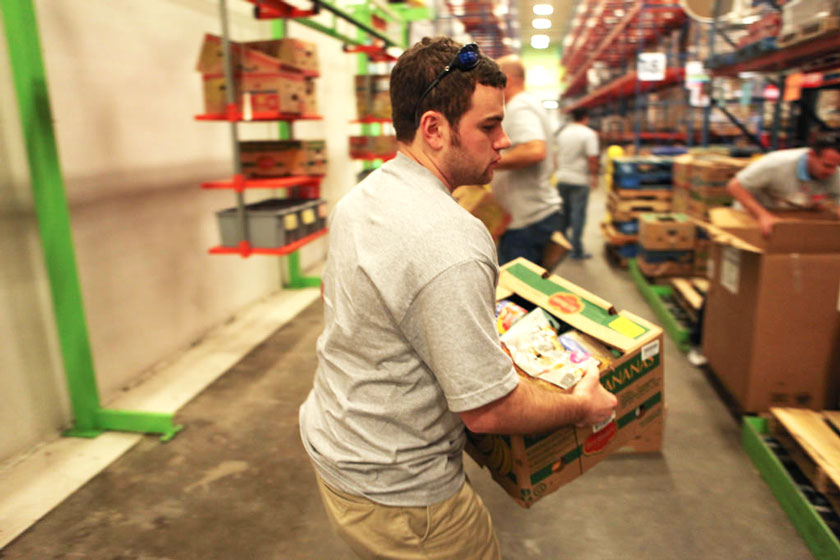Food rescue

Identify food waste that can be donated
After conducting a waste and site assessment, it should be clear if your business generates waste that can no longer be sold but is edible—this food can be “rescued” through donating it to a local food bank or meal program.
Businesses and individuals who donate food in good faith are legally protected by both state external link and federal external link Good Samaritan laws. In addition to providing much-needed food for your community, your donation may also be tax deductible. View our food rescue resources below to find organizations near you that accept food for donation. Be sure to check what kinds of food are accepted before dropping off food.
Resources for donating edible food waste
If your business has edible food that can’t be sold, don’t throw it away. Hunger relief organizations can make sure that it gets to someone who needs it while it’s still safe and nutritious to eat. These organizations have the networks, staff and infrastructure in place to distribute food quickly and safely. These resources can help coordinate the transportation and rescue of edible food in order to redistribute it to families in need. (All links external).
- Food Lifeline external link
Service provided: Food Lifeline partners with members of the food industry (including grocery stores, farmers, food manufacturers, and restaurants) to rescue food that would have otherwise been wasted and redirect it into the hands of people in need.
Applicable to: Food Lifeline partners with companies of all types and sizes, and accepts prepared and perishable food from grocery retail stores, restaurants, hotels, hospitals, delis, caterers, and cafeterias. No donation is too large or small. Visit the Food Lifeline website to learn how they can support your business with its individual food recovery needs.
Contact information: Amythst Shipman, AmythstS@FoodLifeline.org, 206-545-6600 - Northwest Harvest external link (NWH)
Service provided: Northwest Harvest is a nonprofit food bank distributor that distributes food to over 370 food banks, meal programs, and high-need schools statewide. NWH accepts donations of fresh fruits and vegetables as well as anything considered shelf stable.
Applicable to: Any organization or business can donate nonperishable food or hold a food drive. Food processors and growers can donate unsellable surplus perishable foods through prearrangement with NWH.
Contact information: info@northwestharve st.org, 800-722-6924 206-923-7432 - Food Donation Connection LLC external link
Service provided: Food Donation Connection provides an alternative to discarding surplus wholesome food by linking food service donors with surplus food to local hunger relief agencies. Food Donation Connection does this by creating and maintaining an efficient communication and reporting network that links available sources of food to those in need through these existing charitable organizations.
Applicable to: Food Donation Connection works with all size food service donors from local operations to national chains.
Case study: YUM Brands Harvest Program.
Contact information: Jim Larson, Jim.Larson@foodtodonate.com, 800-206-3952
NOTE: King County maintains this resource list as a courtesy to the public and does not endorse or guarantee the quality of the service offered or provided. If your business or organization offers waste prevention, reduction, rescue or recycling services and would like to be listed on this website, please contact Karen May at Karen.may@kingcounty.gov.


 Translate
Translate
